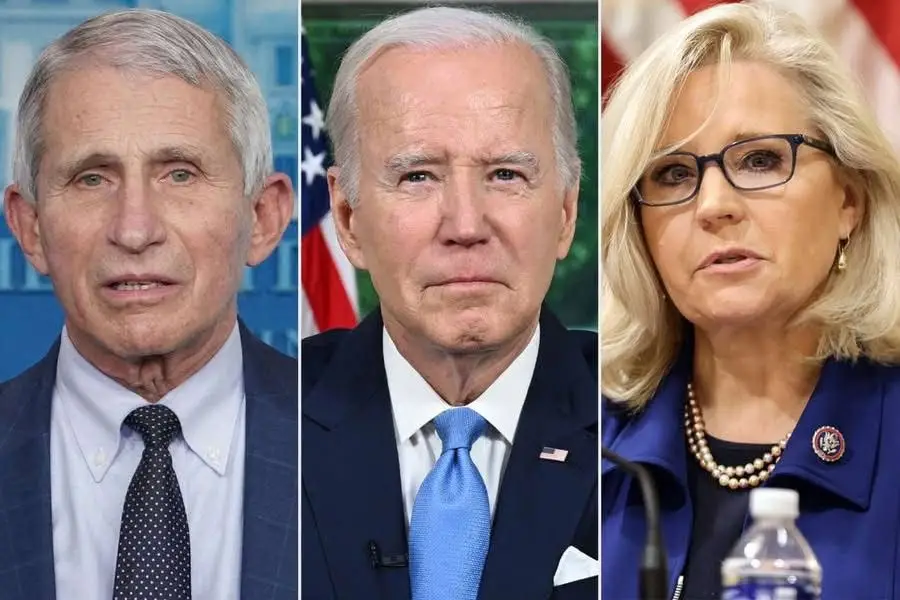In a surprising move, outgoing President Joe Biden issued a round of last-minute pardons to a small group of high-profile individuals, including former Wyoming congresswoman Liz Cheney, Dr. Anthony Fauci, and members of the January 6 Committee. While intended to protect them from potential retaliation by incoming President Donald Trump and his administration, the clemency sparked immediate controversy and raised significant legal questions.
The Scope of the Pardons
The pardons were described by Biden’s aides as a safeguard against “acts of vengeance” that might be pursued by the Trump administration. However, legal experts were quick to note that the clemency measures come with limitations.
Jesse Binnall, a federal litigation attorney and former Trump lawyer, highlighted that these pardons do not protect recipients from being subpoenaed to testify under oath. He emphasized that the pardons could, in fact, facilitate prosecutions since they remove the ability to invoke the Fifth Amendment to avoid self-incrimination.
“The pardons are actually great news,” Binnall wrote on X (formerly Twitter). “No one who was just pardoned will be able to refuse to testify in a civil, criminal, or congressional proceeding based upon the 5th Amendment.”
Potential Legal Complications
Critics of Biden’s move argue that the pardons could backfire on their recipients. Blanket pardons typically cover offenses committed before the issuance but do not extend to future actions or crimes discovered later.
Josh Barnett, a former Arizona state legislature candidate, weighed in on this aspect, particularly referencing allegations against retired Army Gen. Mark Milley. Milley reportedly contacted his Chinese counterpart during Trump’s presidency, promising to warn of any U.S. attack—a move some critics view as treasonous.
“A pardon only covers the crimes explicitly mentioned or implicitly understood to be covered by the pardon at the time it was granted,” Barnett explained. “If the treason was committed or discovered after the pardon, it would not be protected by that pardon.”
This nuance leaves recipients like Milley, Cheney, and others potentially vulnerable to legal scrutiny, depending on the scope of their actions and the timing of investigations.
Political Reactions
Trump was quick to denounce the pardons during his first day in office. While signing executive orders in the Oval Office, he lashed out at Biden’s decision.
“I was going to talk about the things that Joe did today with the pardons of people that were very, very guilty of very bad crimes,” Trump said to reporters. He specifically criticized Cheney, calling her a “crying lunatic.”
The former president’s remarks underscore the deep partisan divisions surrounding the January 6 Committee and its members, who were seen by Trump allies as politically motivated actors.
Debate Over Venue and Bias
Another concern raised by critics involves the potential for partisan bias in Washington, D.C., where any legal proceedings involving Cheney, Fauci, or Milley might take place. Retired U.S. Army officer and attorney Kurt Schlichter suggested moving depositions and trials out of the capital.
“Washington, D.C., is a biased venue that will not convict Democrats when they commit perjury,” Schlichter wrote on X. “Accordingly, take this show on the road.”
This idea reflects broader frustrations among conservatives who believe the justice system in D.C. is stacked against Republicans.
Implications for Biden’s Legacy
Biden’s last-minute pardons add a contentious chapter to his presidency. While his aides frame the clemency as a measure to protect public servants from politically motivated retaliation, critics argue it was an overreach that may cause unintended consequences.
Moreover, the pardons bring to light complex questions about their scope and effectiveness in shielding recipients from future legal challenges. Whether the clemency will achieve its intended purpose or inadvertently expose the recipients to new legal risks remains to be seen.
For now, the decision has set the stage for further political and legal battles as the Trump administration begins its second term.

